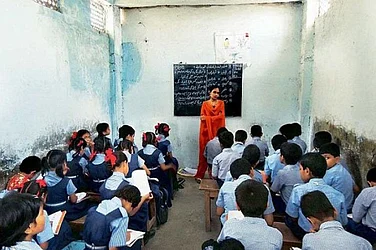Union Environment Minister Bhupender Yadav on Tuesday said developed countries should take the lead in reducing carbon emissions drastically, as they have contributed the most to global warming historically and even at present.
He also said the Covid pandemic has compounded the challenge of fighting global warming as economic pressures have delayed or slowed climate action across the world.
Addressing the opening plenary of the United Nations Convention to Combat Desertification (UNCCD) Conference of Parties at its 15th session (COP15) at Abidjan, Ivory Coast, the minister said that taking care of the land that "sustains us can help the fight against global warming".
He also noted that despite the declining condition of land, the world continues to go on with consumerism-driven lifestyles.
"It is imperative that we collectively move away from a consumption-oriented approach. The mindset of use and throw is deleterious for the planet,” a statement quoted the minister as saying.
"Protecting both people and the planet will not be possible without the developed countries taking the lead in drastic emissions reduction, as their responsibility for global warming is the highest both historically and at present," he said.
During India's presidency of the COP since 2019 and the leadership of Prime Minister Narendra Modi, the country has made significant progress in its commitment to restore 26 million hectares of degraded land by 2030, Yadav said.
India has enhanced the monitoring of the health of its soils through the Soil Health Card Programme, he said.
"Over 229 million Soil Health Cards have been issued to farmers between 2015 and 2019 and this program has reduced the use of chemical fertilizers by 8 to 10 percent and raised productivity by 5 to 6 percent," he said.
Underlining that landscape restoration is more than planting trees, he said it is essential that we recognise the power of local and indigenous knowledge with the close assistance of science and technology and must integrate community needs, priorities and expertise in all parts of the process.
The fifteenth session of the Conference of the Parties (COP15) of UNCCD from May 9 to 20 will bring together leaders from governments, the private sector, civil society and other key stakeholders from around the world to drive progress in the future sustainable management of land and will explore links between land and other key sustainability issues.
Drought, land restoration, and related enablers such as land rights, gender equality and youth empowerment are among the top items on the COP15 agenda.
Through its decisions adopted by UNCCD's 197 Parties, COP15 is expected to galvanise sustainable solutions for land restoration and drought resilience, with a strong focus on future-proofing land use.
-With PTI Input


























